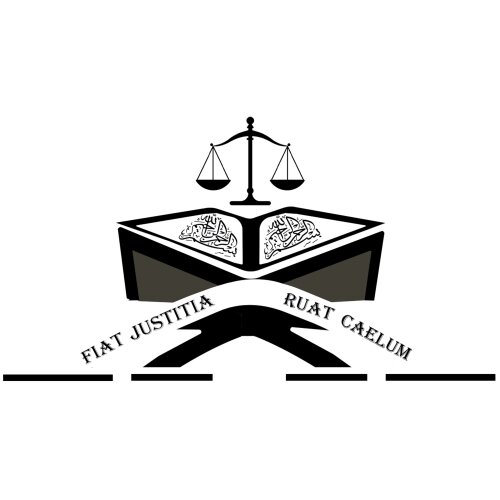Best Divorce & Separation Lawyers in Islamabad
Share your needs with us, get contacted by law firms.
Free. Takes 2 min.
Free Guide to Hiring a Family Lawyer
List of the best lawyers in Islamabad, Pakistan
Quaidian Lawyers and corporate consultants, Islamabad
15 minutes Free ConsultationPakistan Divorce & Separation Legal Questions answered by Lawyers
Browse our 6 legal questions about Divorce & Separation in Pakistan and read the lawyer answers, or ask your own questions for free.
- Regarding divorce pakistan
- My husband wants to divorce me from Pakistan. He is in Italy, and I'm in the UK. He never came to England. I don't want to accept the divorce. What can I do?
-
Lawyer answer by MAH&CO.
Hello,Thank you for sharing your situation. Under Pakistani law, a husband can initiate divorce (Talaq) even if he is residing abroad. However, the process must comply with legal requirements, including sending a written notice to the Union Council and giving...
Read full answer - After the baby will born. And the parents get divorce. So, the baby all birth documents have still has their father name on it or not?
- Currently am pregnant. And my husband send me from United Kingdom, London to Pakistan and now he's not communicating with me and also not send me my maternity expenses. So, after the baby born. And if I want divorce from him. So, the baby all documents will not have his... Read more →
-
Lawyer answer by Jeelani Law Empire Karachi Pakistan
LEGAL CONSULTATION OFFER – FAMILY, DIVORCE & CHILD SUPPORTDear Madam,Thank you for reaching out regarding your situation. Based on the facts you shared, please find below the legal position and support we can offer:✅ Legal Position:Father’s Name on Baby’s Documents:As...
Read full answer - annulment of marriage
- can a marriage be annulled after rukhsati and nikah even if not consummated?
-
Lawyer answer by Iqbal International Law Services
First of all, there is no law of annulment in Muslim law. If you are talking about Christians, that is a different matter. However, after rukhsati, marriage cannot be annulled. After rukhsati, one can go for divorce.
Read full answer
About Divorce & Separation Law in Islamabad, Pakistan:
Divorce and separation laws in Islamabad, Pakistan govern the legal process of dissolving a marriage or separating from a spouse. These laws outline the rights and obligations of the parties involved and provide a framework for resolving various issues such as child custody, division of assets, and financial support.
Why You May Need a Lawyer:
There are several situations where seeking legal help in divorce and separation matters is crucial:
- If you and your spouse are unable to reach an agreement on important issues such as child custody or property division.
- If there is domestic violence or abuse involved in your relationship.
- If you need assistance in understanding your rights and obligations under the law.
- If your spouse has hired a lawyer and you feel the need for professional representation.
- If you want to ensure that all legal formalities and documentation are handled properly.
Local Laws Overview:
When it comes to divorce and separation in Islamabad, Pakistan, the following key aspects of the local laws are particularly significant:
- Islamabad follows the principles of Islamic law, which is known as Shariah law, for matters related to divorce and separation.
- Under Shariah law, a husband has the right to divorce his wife through various methods, such as verbal pronouncement or written documentation.
- In cases where both parties mutually agree to divorce, they can do so through a process called Khula, where the wife seeks divorce from the husband by returning her dowry or paying compensation.
- The courts in Islamabad have the authority to adjudicate divorce cases and determine issues such as child custody, visitation rights, alimony, and division of property.
- The length of time required to finalize a divorce can vary based on the complexity of the case and the court's caseload.
Frequently Asked Questions:
Q: How long does it take to get a divorce in Islamabad, Pakistan?
A: The duration of the divorce process can vary depending on various factors, including the complexity of the case and the workload of the court. Typically, uncontested divorces may take around 3-6 months, whereas contested divorces can take longer.
Q: Can I get a divorce if my spouse is not willing to cooperate?
A: Yes, it is possible to obtain a divorce even if your spouse is not willing to cooperate. However, the process may take longer and may require presenting evidence to the court demonstrating valid reasons for seeking a divorce.
Q: What factors are considered when determining child custody in Islamabad?
A: When determining child custody, Islamabad courts consider the best interests of the child as the paramount factor. Factors such as the child's age, health, and relationship with each parent are taken into account. The court may also consider the parents' ability to provide for the child's physical and emotional well-being.
Q: How is property divided during a divorce in Islamabad?
A: Property division during a divorce in Islamabad is based on the principles of fairness and equity. The court will consider the contributions of each party to the marital assets and liabilities, the length of the marriage, and the financial needs of both spouses before making a decision on property division.
Q: Can I remarry after getting a divorce in Islamabad?
A: Yes, after obtaining a divorce, both parties are free to remarry if they wish. However, it is important to follow the legal requirements and procedures involved in getting married again.
Additional Resources:
For further assistance and information regarding divorce and separation in Islamabad, Pakistan, consider reaching out to the following resources:
- The Family Court in Islamabad
- Pakistan Bar Council
- Legal Aid organizations offering free or low-cost legal services
Next Steps:
If you require legal assistance with divorce and separation matters in Islamabad, Pakistan, follow these steps:
- Research and identify reputable lawyers who specialize in family law and have experience in divorce and separation cases.
- Arrange initial consultations with potential lawyers to discuss your situation and assess their expertise and compatibility with your needs.
- Select a lawyer whom you feel comfortable with and who demonstrates a strong understanding of divorce and separation laws in Islamabad.
- Provide all necessary documents and information to your lawyer to initiate the legal process.
- Cooperate with your lawyer throughout the proceedings and follow their guidance to achieve the best possible outcome in your case.
Lawzana helps you find the best lawyers and law firms in Islamabad through a curated and pre-screened list of qualified legal professionals. Our platform offers rankings and detailed profiles of attorneys and law firms, allowing you to compare based on practice areas, including Divorce & Separation, experience, and client feedback.
Each profile includes a description of the firm's areas of practice, client reviews, team members and partners, year of establishment, spoken languages, office locations, contact information, social media presence, and any published articles or resources. Most firms on our platform speak English and are experienced in both local and international legal matters.
Get a quote from top-rated law firms in Islamabad, Pakistan — quickly, securely, and without unnecessary hassle.
Disclaimer:
The information provided on this page is for general informational purposes only and does not constitute legal advice. While we strive to ensure the accuracy and relevance of the content, legal information may change over time, and interpretations of the law can vary. You should always consult with a qualified legal professional for advice specific to your situation.
We disclaim all liability for actions taken or not taken based on the content of this page. If you believe any information is incorrect or outdated, please contact us, and we will review and update it where appropriate.
















